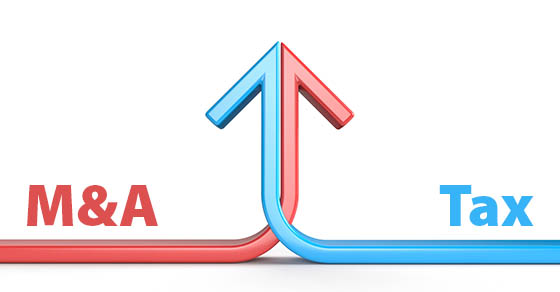The value of M&A transactions took a hit in 2022 with interest rates on the rise. The value was down 41.4% from 2021, according to S&P Global Market Intelligence. However, some analysts expect 2023 to see increased M&A activity in certain industries.
If you’re considering buying or selling a business, it’s important to understand the tax implications.

Two approaches
Under current tax law, a transaction can basically be structured in two ways:
1. Stock (or ownership interest). A buyer can directly purchase a seller’s ownership interest if the target business is operated as a C or S corporation, a partnership, or a limited liability company (LLC) that’s treated as a partnership for tax purposes.
The current 21% corporate federal income tax rate makes buying the stock of a C corporation somewhat more attractive. That’s because the corporation will pay less tax and generate more after-tax income. Plus, any built-in gains from appreciated corporate assets will be taxed at a lower rate when they’re eventually sold.
The current individual federal tax rates have also made ownership interests in S corporations, partnerships and LLCs more attractive. Reason: The passed-through income from these entities also is taxed at lower rates on a buyer’s personal tax return. However, individual rate cuts are scheduled to expire at the end of 2025.
2. Assets. A buyer can also purchase the assets of a business. This may happen if a buyer only wants specific assets or product lines. And it’s the only option if the target business is a sole proprietorship or a single-member LLC that’s treated as a sole proprietorship for tax purposes.
What buyers want
For several reasons, buyers usually prefer to buy assets rather than ownership interests. In general, a buyer’s primary goal is to generate enough cash flow from an acquired business to pay any acquisition debt and provide an acceptable return on the investment. Therefore, buyers are concerned about limiting exposure to undisclosed and unknown liabilities and minimizing taxes after a transaction closes.
A buyer can step up (or increase) the tax basis of purchased assets to reflect the purchase price. Stepped-up basis lowers taxable gains when certain assets, such as receivables and inventory, are sold or converted into cash. It also increases depreciation and amortization deductions for qualifying assets.
What sellers want
In general, sellers prefer stock sales for tax and nontax reasons. One of their objectives is to minimize the tax bill from a sale. That can usually be achieved by selling their ownership interests in a business (corporate stock, or partnership or LLC interests) as opposed to selling assets.
With a sale of stock or other ownership interest, liabilities generally transfer to the buyer and any gain on sale is generally treated as lower-taxed long-term capital gain (assuming the ownership interest has been held for more than one year).
Seek advice before a transaction
Be aware that other issues, such as employee benefits, can also cause tax issues in M&A transactions. Buying or selling a business may be the largest transaction you’ll ever make, so it’s important to seek professional assistance before finalizing a deal. After a transaction is complete, it may be too late to get the best tax results. Contact your Rudler, PSC advisor about how to proceed at 859-331-1717.
RUDLER, PSC CPAs and Business Advisors
This week's Rudler Review is presented by Kendra Anderson, Staff Accountant and Gina Earle, CPA.
If you would like to discuss your particular situation, contact Kendra or Gina at 859-331-1717.


As part of Rudler, PSC's commitment to true proactive client partnerships, we have encouraged our professionals to specialize in their areas of interest, providing clients with specialized knowledge and strategic relationships. Be sure to receive future Rudler Reviews for advice from our experts, sign up today !